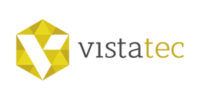Breaking Language Barriers in Clinical Research
Clinical trials serve as the backbone of medical innovation, yet a significant portion of the global population remains underrepresented due to language barriers for non-English speakers. In this episode, moderator Karen Tkaczyk led a compelling discussion on strategies for engaging non-English speakers in clinical research. Featuring Julie Blasingim (CEO, Univo IRB), Harsha Rajasimha (CEO, Jeeva Clinical Trials), and Lya Rebelo (Commercial Enablement Manager, Citeline), the conversation tackled regulatory challenges, ethical considerations, and the role of technology in fostering inclusivity.
The Challenge: Lost in Translation
The exclusion of non-English speakers in clinical trials is a widespread yet often overlooked issue. Julie Blasingim highlighted a staggering statistic: while one in five U.S. households speaks a language other than English, only 3% of clinical trial participants come from non-English-speaking backgrounds. This discrepancy creates a significant gap in medical research, potentially leading to treatments that are not fully representative of the populations they aim to serve.
Regulations emphasize the importance of equitable representation, yet language barriers remain a persistent obstacle. Institutional Review Boards (IRBs) and ethics committees are responsible for ensuring that informed consent materials are available in languages that participants understand, but logistical and financial hurdles often hinder compliance. The result? Patients who might otherwise benefit from clinical trials are left out due to lack of accessibility.
Ethical & Regulatory Considerations
Ethical frameworks such as the Helsinki Declaration and Good Clinical Practice (GCP) guidelines emphasize patient-centric research, yet non-English speakers are frequently excluded due to study design constraints. Blasingim pointed out that nearly 20% of trials explicitly require English proficiency, limiting participation from diverse communities.
Lya Rebelo brought attention to the European regulatory landscape, noting that EU guidelines require trial materials to be available in multiple languages, but implementation varies by country. She stressed that while diversity initiatives are gaining momentum, more needs to be done to ensure sustainability in patient inclusion, regardless of shifting political or regulatory climates.
Harsha Rajasimha echoed these sentiments, arguing that excluding patients based on language contradicts the very principle of patient-centric research. He posed a thought-provoking question: If we truly prioritize patient needs, why are we excluding individuals based on language rather than finding ways to engage them?
Technology as a Solution
The discussion highlighted digital solutions as a powerful tool in overcoming language barriers. Rajasimha shared how Jeeva Clinical Trials has developed technology to facilitate multilingual consent processes and remote participation, making trials more accessible to patients worldwide.
Blasingim also emphasized the potential of AI-driven translation tools to reduce costs and improve efficiency. However, he cautioned against over-reliance on AI without proper quality assurance, stressing that translations must be reviewed by certified professionals to ensure accuracy and comprehension.
Rebelo reinforced the idea that patient-facing materials should not only be translated but also designed for accessibility. Visual aids, simplified language, and interactive formats can significantly enhance patient understanding, benefiting not just non-English speakers but all trial participants.
A More Inclusive Future for Non-English speakers
The panelists unanimously agreed on the need for industry-wide collaboration to drive meaningful change. Sponsors, CROs, and regulatory bodies must proactively integrate multilingual strategies into trial design rather than treating them as an afterthought.
Key takeaways for clinical trial professionals:
- Proactively Plan for Multilingual Inclusion: Ensure recruitment strategies, consent forms, and patient materials are available in appropriate languages from the outset.
- Leverage Technology Responsibly: AI translation and digital consent tools can improve accessibility, but human oversight remains crucial.
- Commit to Training & Awareness: Research staff should receive ongoing education on best practices for engaging non-English-speaking participants.
- Advocate for Regulatory Action: While industry standards are evolving, stronger mandates may be necessary to enforce inclusivity across global trials.
As Julie Blasingim aptly put it, “We need more patients in trials, and that means thinking beyond the status quo. If we’re truly committed to patient-centric research, inclusivity isn’t optional—it’s essential.”
About Life Sciences – In Focus
Life Sciences – In Focus Podcast by Visatatec, a fascinating conversation with global life sciences experts. The show has multiple hosts and topics. Follow Life Sciences – In Focus on Spotify for all the latest episodes, or subscribe to the show on YouTube and Apple podcasts. Life Sciences – In Focus is available on many other podcast platforms. To learn more about the podcast, please visit https://vistatec.com/life-sciences-division.
About Vistatec
We have been helping some of the world’s most iconic brands to optimize their global commercial potential since 1997. Vistatec is one of the world’s leading global content solutions providers. HQ in Dublin, Ireland, with offices in Mountain View, California, USA. To learn more about Vistatec, please visit https://www.vistatec.com

